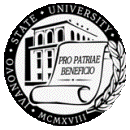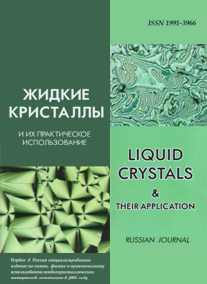|

|
Liquid Crystals and their Application
Russian Journal Zhidkie kristally i ikh prakticheskoe ispol'zovanie Жидкие кристаллы и их практическое использование |

|
|

|

|
|
|
Menu

|
|
|
|
|
Zhidk. krist. ikh prakt. ispol'z. = Liq. Cryst. and their Appl., 2008, 4, 86—94. |

|
|
Modulatory Effects of Fish Oil on Amikacin Toxicity: Influences on Antioxidant Status
|
V. V. Zaytsev1, F. Amin2, B. Bano2, N. B. Zaytseva1
|
Author affiliations
1Institute of Human Ecology,
Moscow.
E-mail: mocconfere@rambler.ru
2Department of Biochemistry, Faculty of Life Sciences
Aligarh Muslim University.
Aligarh, India
|
|
Abstract
This study was undertaken to investigate the effect of fish oil in reversal of the nephrotoxicity induced by amikacin in rat model. The study was also extended to compare the preventive effects of fish oil in ameliorating amikacin nephrotoxicity to that of olive oil. Animals were given amikacin via intraperitonial route (i.p) at a dose of 250 mg/kg body weight/ day for 8 days to induce maximum nephrotoxicity, which lead to a significant increase in serum urea and creatinine levels. Fish and olive oil was given to these nephrotoxic rats in a pre, post and co treatment for 8 days at the dose of 5 ml/ kg body weight/ day. Pre and post fish oil treatment resulted in normalizing the otherwise elevated levels of urea, creatinine, cholesterol, serum glutamate oxaloacetate transaminases (SGOT), serum glutamate pyruvate transaminases (SGPT) and inorganic phosphate. The indices of renal damage were also detected by evaluating the levels of various kidney marker enzymes. Amikacin treatment resulted in a significant fall in levels of alkaline phosphatase (AlP) and acid phosphatase (AcP). The decreased level of these renal enzymes were also significantly increased with prefish oil treatment. Experimental evidences also suggest a role of reactive oxygen species in antibiotic induced toxicity. Therefore the levels of catalase (CAT), superoxide dismutase (SOD), glutathione-S-transferase (GST) were also determined. Amikacin alone resulted in a significant decrease in the levels of these enzymes. However, feeding fish oil resulted in a significant increase in the levels of these enzymes thereby enhancing the efficiency of the antioxidant defence system. We conclude that fish oil supplementation has a beneficial role in combating the toxicity induced by amikacin, which may be due to the changes in kidney and liver brought about by n-3 fatty acids which are present predominantly in the fish oil. It is established, that liquid crystal membrane systems are exposed to updating.
Keywords: fish oil, olive oil, amikacin, urea, creatinine, antioxidant enzymes
|
|
|
|
|
|




